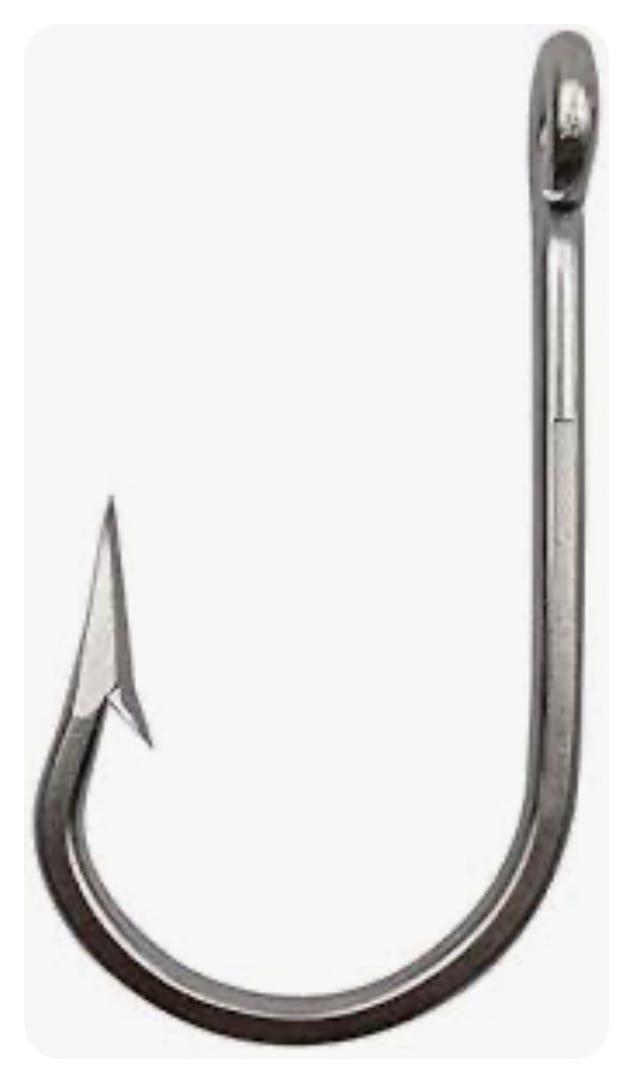At the height of Covid, I had a conversation with the great Nora McInerny on her podcast, Terrible, Thanks for Asking. Nora got me to talk about a lot of things that had gone unsaid about Motherland —- and about my mother, who, at the time of the recording, had recently returned to New York after living with us for three months during the height of pre-vaccine Covid. It was a very different kind of conversation, spoken in hushed tones, interspersed with Nora’s wisdom and insight. And during it, she took me off guard by mentioning something I’d written about a few years earlier: the Tibetan Buddhist concept of shenpa.
Shenpa translates more or less to attachment. Pema Chodron describes it specifically as “getting hooked." It's a sticky feeling, she says. For me, it's that old familiar grind that I get in the pit of my stomach that churns and growls when someone says something particularly cruel or outrageous to me, even if I know deep down that it's their mishegas that's causing them to say it, as opposed to my own (and believe me, I have plenty). I want to fix them, or to help them. I want them to understand, perhaps, that I am not the person that they think I am, or have been told I am by a raging gossip machine that has gotten me trapped in someone’s crosshairs. Shenpa is the thing that makes you take a daily journey into your ex’s social media feed because you cannot help yourself. Shenpa is the thing that convinces you, somehow, that the one truly unkind person at your holiday table who attacks anyone she can sink her talons into is worthy of trying to convince to be nice, or even worthy of having at your table at all since she always starts a fight or makes someone cry. It’s more than codependency; shenpa is like the La Brea Tar Pits of emotional hookage.
Shenpa is an unspecific compulsion or craving, and therefore can be relatable to anything; it's like not being able to scratch an itch, or not being able to refuse a drink when you are supposed to, or not being able to keep yourself from getting sucked in to a vortex of drama by bored people with nothing else to do.
The holiday season is prime shenpa time, given the unresolved family dramas so many of us face. It is sometimes described as an unspecific compulsion or craving, and therefore relatable to anything; it's like not being able to scratch an itch that’s driving you mad, or not being able to keep yourself from getting sucked in to gossip by bored people with nothing else to do. Shenpa is Charlie Brown and Lucy and the football; Charlie believes that someday Lucy will find it in her heart to let him kick the damn ball even though she never has and never will. This time will be different, he thinks, but it never is. Shenpa is the belief that someone who has been unerringly shitty to me will change if I just become what Anne Lamott calls an emotional flight attendant, and that THIS holiday season, they will find love and kindness in their heart if I just get them exactly what they need, even if the need is that I be their doormat. Like Charlie Brown, I take the bait, whatever that bait is, and I’m off and running. Shenpa is an emotional Möbius strip, a big looping spiral of flypaper stickiness with no discernible end. Forget about your day job --- if you're stuck in a shenpa coil, there aren't enough hours; there isn't enough energy coursing through your veins. Best to step off the track, to pause, to breathe. If you can remember how.
It’s more than codependency; shenpa is like the La Brea Tar Pits of emotional hookage.
I know when shenpa has me by the throat by the way I cook, and the way I interact with Susan. My brain goes elsewhere; I go through the motions. I hear the hollowness of my own vice, as though someone else is talking. Standing at the stove, I’m distracted; suddenly, I absolutely have to check Instagram or my Twitter feed, or my email to make sure that the person I'm engaged with in a psycho-emotional digital drama hasn't responded, because then I have to respond and then they’’ll have to respond and then I’ll have to respond. I'm making dinner, perhaps, and those gorgeous local pork chops that are sitting in the blazingly hot, 1932 Griswold skillet we inherited from Sue's Aunt Ethel cook for a split second longer than they should because I wasn't present in either mind or body. Shoe leather. Very expensive, artisanal, locally-raised, hormone-free shoe leather. Susan has lit the candles and set the dinner table with our Laguiole steak knives, which now can't even saw through the meat. She smiles and touches my hand and tells me it's really okay despite the fact that I cannot stop watching someone’s Instagram feed for evidence of whatever the hell he’s doing or saying now.
If you think of shenpa as a live, red-hot wire, then what happens when you snip the wire? Game over.
How do we live with shenpa, and how do we cope with it? A few years ago, when someone I used to know was unwittingly stuck in a shenpa spiral —- there had been gossip, friend loss, and she was trying to unearth the source of the enmity and suspected everyone around her, myself included —- I made a suggestion to her: put down your swords and walk into the forest. Go in the other direction. Get out the metaphysical GOO GONE and get unstuck. I told her this, and she literally laughed in my face. She wasn’t just experiencing shenpa; she was shenpa. Shenpa is fueled by ego, and the unbridled need to control the situation (any situation) which, of course, is impossible. If you think of shenpa as a live, red-hot wire, then what happens when you snip the wire? Game over. Fire needs oxygen for combustion; no oxygen, no fire. The end.
So here we are, in the season of love and light and giving, when those of us who are triggered by certain things and certain people who might be, say, dining around our table or sitting next to us in church or sleeping in our guest room. Or we, theirs. Your mother (actually, my mother) will greet you with a Hello Honey You’ve Lost Weight (which is a lot like Have you stopped beating your wife). You/I could take the bait and have a screaming blowout with her 87 year old passive aggressive self who is never going to change, but why even bother? Or everyone chooses to ignore your alcoholic, open-carrying Uncle Ed until he has three double Scotches, picks a fight with your five year old niece who runs screaming from the table, your mother says Oh you just need more wine, Ed….Pete go get him more wine and Uncle Ed has more wine and eventually passes out with his cheek resting on the basket of Parker House rolls while your mother says he’s just not getting enough rest. Someone you know well cancels a longstanding dinner date with you because they’re getting the flu, and the next day, there she is, all over Facebook, having dinner the previous evening with someone else; if you question her about it, she’ll call you dramatic and a fight-picker, the way she always does when you call her out on some other outrageous behavior for which she will not take responsibility. You can choose to engage with her —- shenpa —- or put down your sword and walk away in service of your own sanity, knowing that she’ll get bored and eventually take her rage elsewhere. It will feel weird and uncomfortable —- that weirdness and discomfort is existential grief for saying goodbye to something that was once so very normal for you —- and then your world will be a little clearer, like someone took off your glasses, cleaned them, and handed them back to you.
There are times, of course, when we can’t do this. There are times when all we can do is just smile weakly at Mama over the dinner table, even though we really want to fly over the roast at her like Julia Roberts and Meryl Streep in August: Osage County. When things start heating up, though: remove yourself. Get up and go for a walk in the cold winter air. Get granular: run your hands through the snow, or if there’s no snow, the soil. Hang out with the babies. Walk the dog. Step away, and make yourself a cup of tea. When I have been sucked into a holiday shenpa vortex, I’ve been known to excuse myself and lie down for a nap, or if things are really wild, walk into any open house of worship and just sit in the quiet. Sometimes, it’s better to apologize politely and not attend the function with the people who will trigger you like a shotgun because they absolutely always do, and they seem to love it. Let them party on without you.
Amidst the noise and the expectations, the gossip and the fighting and the grief and the resentment, take a break. Don’t take the bait. Be with those you love and who love you back. Revel in the quiet. Never mind a cup of tea; go a little crazy and make a whole pot. Make a cake. Put on Yo Yo Ma playing the Unaccompanied Bach Cello Suites. Build a fire. Feel the warmth.
A Simple Orange Cake for When Your Holiday Nerves Are Shot
I have neither a sweet tooth nor any particular baking talent, but every once in a while, I want a slice of something sweet-ish. I can live without chocolate, but I love citrus, and when I first found this classic Claudia Roden recipe for orange almond cake, I fell in love. I’ve made it once, but Susan has made it probably a dozen times in half as many years, and it is delicious: sweet but not cloying, and perfect for the winter, and citrus season. Excellent served slightly warm with a scoop of almond ice cream and cup of mint tea after a Middle Eastern-inflected dinner.
From A New Book of Middle Eastern Food
2 large oranges
6 eggs
1 cup caster sugar
1 teaspoon baking powder
1 cup ground almonds
unsalted butter for the pan
flour, for the pan
Wash the oranges and in a medium saucepan boil them whole for 1½ hours or until they are very soft.
Preheat oven to 375 degrees F. When cool enough to handle, cut the oranges open, remove the seeds and puree the fruit, including the peels, in a food processor.
In a large bowl, beat the eggs together with the sugar. Add the baking powder and almonds and mix well. Then mix thoroughly with the orange puree and pour into a buttered and floured cake tin – preferably non stick and with a removable base.
Bake for an hour. Let the cake cool in the tin before turning out.







"Don't take the Bait", I think it will be my new mantra! Thanks for sharing this with us!
This strongly resonated with my experience. Thank you identifying the difficult relative's need for power, which helped me realize it matches their controlling behavior - and their OCD. Knowing their parents' own controlling behavior, and understanding their low self-esteem, your post made me feel less judgmental and more forgiving. I had already decided to free myself of them, but after reading your post, I don't feel that raw hurt and anger any more. Just bye-bye, and good luck to them.